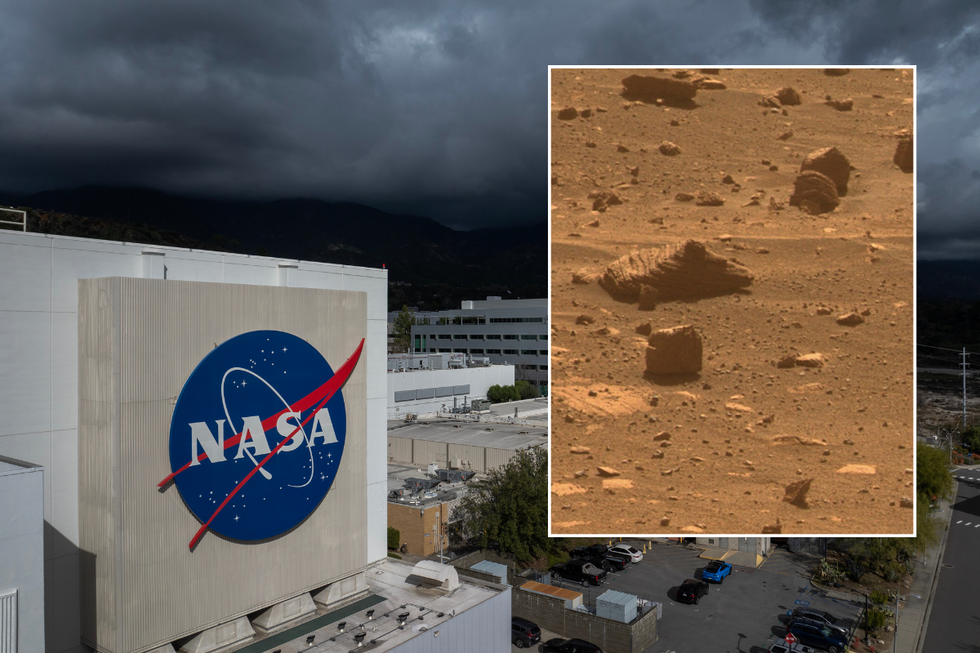Nasa looking for four people to spend ONE year living in 'indoors Mars' experiment

WATCH: Stephen Fry says Musk is trying to get to Mars as "he knows the world is doomed"
|GB News

The experiment has split opinion among the scientific community
Don't Miss
Most Read
A Nasa experiment into living conditions Mars is looking for civilians to take part for a whole year.
The base, Mars Dune Alpha is 1,700 square foot and will involve a crew of four spending a year pretending they are on the red planet in the Johnson Space Centre in Houston, Texas.
The base, most well known as the home of the Gemini and Apollo missions, has invited civilians to apply to join Nasa’s Crew Health and Performance Exploration Analog, or Chapea, programme from next year.
However, the experiment has caused controversy, with some scientists saying it is not the right way to prepare for a potential Mars mission.

Nasa is preparing people to make the journey to Mars
|Getty
The Mars Society has pointed out that when humans eventually go to Mars, we are likely to want to go outside.
A spokesperson from the society, which is dedicated to the human exploration and settlement of Mars and which conducts rival simulations, pointed out some of the more remote spaces on Earth would work better.
Founder Robert Zubrin pointed to their research stations in the Canadian high Arctic and Utah desert, both of which he said offers "interesting geological environments, similar to what one might find on Mars."
He added: "Our simulations occur in a field environment … Nasa don’t do this, theirs are isolation experiments...Doing Mars mission simulations without meaningful objectives is like trying to do target practice without a target.
"When you do a mission simulation that doesn’t give crew meaningful exploration to do, what you find is the chief human factors problem the crew faces is boredom.
"On the other hand, a crew in a field environment, when crew are scientists and know they are there to explore, are extremely strongly motivated and the chief human factors problem we find is not boredom, it’s overwork. I led several crews in the Arctic and repeatedly had to order my crews to stop working."
LATEST DEVELOPMENTS

Founder of The Mars Society Robert Zubrin
|Getty
The Nasa experiment programme said: "Applicants should have a strong desire for unique, rewarding adventures and interest in contributing to Nasa’s work to prepare for the first human journey to Mars."
It added that volunteers must be made of the 'right stuff', holding a master’s degree in a Stem subject, science, technology, engineering or mathematics, with at least two years’ professional experience or at least a thousand aircraft piloting hours.
They must also be healthy US citizens or permanent residents, non-smokers, aged between 30 and 55 years and proficient in English.
However, Zubrin said there were more moral conditions that needed to be met, saying that the best crews were "people who believe in the ideals of one humanity and united nations."
Zubrin's missions are shorter, ranging from two weeks to three months, but they have completed more than 300 involving about 1,800 people overall.
Each morning the crews gather in a small common area to eat a breakfast of dried food, bacteria cultures and greenhouse plants.
The crew are allotted one 90-second shower per day each and must wear spacesuits if they venture outside.
On such outdoor expeditions they practice emergency scenarios such as deciding whether to let colleagues return to the station if they are contaminated by radiation.










